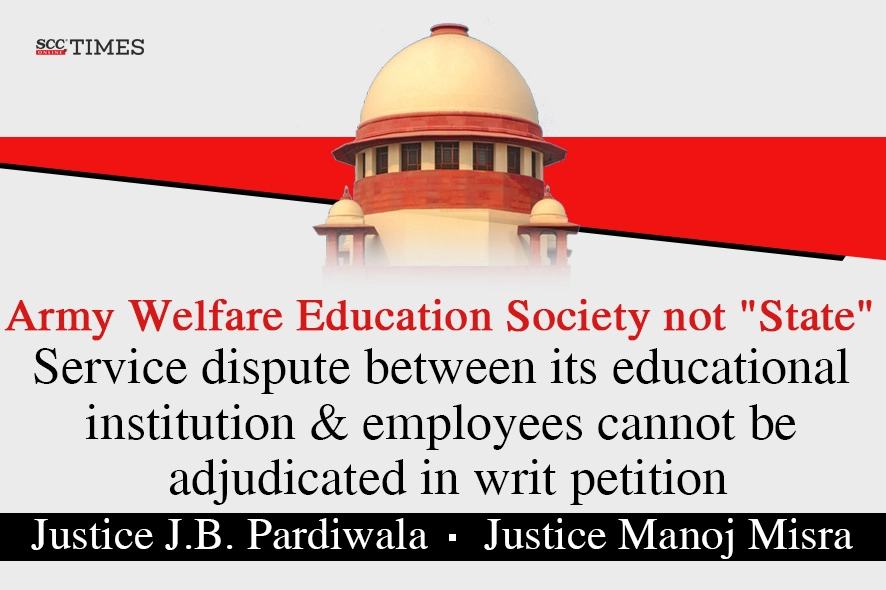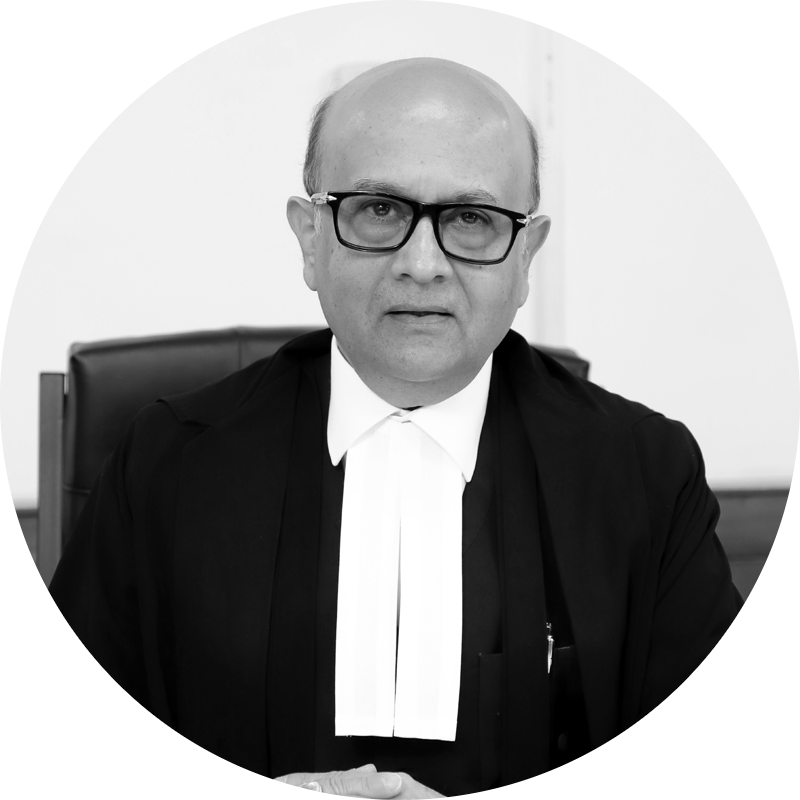Supreme Court: In appeals filed against the judgment and order passed by the Uttaranchal High Court, wherein the Court upheld the Single Judge decision that Army Welfare Education Society (‘AWES’) is “State” under Article 12 of Constitution and a service dispute involving a private educational institution and its employees can be adjudicated upon in a writ petition filed under Article 226 of the Constitution, the Division Bench of J.B. Pardiwala* and Manoj Misra, JJ. while setting aside the impugned judgment, held AWES is not “State” under Article 12 of Constitution and that even if the function being performed by a private educational institution in imparting education may be considered as a public function, the relationship between the administration of such an institution and its employees remains a contractual one, falling within the ambit of private law.
Issues:
-
Whether the AWES is a ‘State’ within Article 12 of the Constitution of India to make a writ petition under Article 226 of the Constitution maintainable against it? In other words, whether a service dispute in the private realm involving a private educational institution and its employees can be adjudicated upon in a writ petition filed under Article 226 of the Constitution?
-
Even if it is assumed that AWES is a body performing public duty amenable to writ jurisdiction, whether all its decisions are subject to judicial review or only those decisions which have public law element therein can be judicially reviewed under the writ jurisdiction?
Analysis and Decision:
Concerning the Single Judge decision, the Court said that since the school imparts education, the public element should be kept in mind. Any institution imparting education discharges public duty and, therefore, public elements may be involved. However, the Single Judge overlooked the fact that the dispute between the school and the teachers and the non-teaching staff relates to their service conditions. In such circumstances, the public element will not come into play.
The Court said that AWES is a purely unaided private society established for the purpose of imparting education to the children of the army personnel including the widows and ex-servicemen.
The Court viewed that the High Court committed an egregious error in entertaining the writ petition filed by the respondents holding that AWES is a “State” within Article 12 of the Constitution. Undoubtedly, the school run by AWES imparts education. Imparting education involves public duty and therefore public law element could also be said to be involved. However, the relationship between the respondents and AWES is that of an employee and a private employer arising out of a private contract. If there is a breach of a covenant of a private contract, the same does not touch any public law element. The school cannot be said to be discharging any public duty in connection with the employment of the respondents.
After referring to Union of India v. Hindustan Development Corpn., (1993) 3 SCC 499 and various other cases, the Court laid down following not exhaustive features regarding the doctrine of legitimate expectation:
-
Legitimate expectation must be based on a right as opposed to a mere hope, wish or anticipation;
-
Legitimate expectation must arise either from an express or implied promise; or a consistent past practice or custom followed by an authority in its dealings;
-
Expectation which is based on sporadic or casual or random acts, or which is unreasonable, illogical or invalid cannot be treated as a legitimate expectation;
-
Legitimate expectation operates in relation to both substantive and procedural matters;
-
Legitimate expectation operates in the realm of public law, that is, a plea of legitimate action can be taken only when a public authority breaches a promise or deviates from a consistent past practice, without any reasonable basis;
-
A plea of legitimate expectation based on past practice can only be taken by someone who has dealings, or negotiations with a public authority. It cannot be invoked by a total stranger to the authority merely on the ground that the authority has a duty to act fairly generally.
The Court said that legitimate expectation, jurisprudentially, was a device created in order to maintain a check on arbitrariness in state action. It does not extend to and cannot govern the operation of contracts between private parties, wherein the doctrine of promissory estoppel holds the field.
The Court said that even if the function being performed by a private educational institution in imparting education may be considered as a public function, the relationship between the administration of such an institution and its employees remains a contractual one, falling within the ambit of private law.
The Court said that the respondents had not shown that any express or implied promise was made by AWES regarding keeping their salary and service conditions intact. There have been no past negotiations or dealings between the respondents and AWES as the dispute arose as soon as AWES took over the administration of the school. Moreover, there is no statutory obligation on AWES which requires that the salaries and allowances of the respondents are to be kept on a par with what is payable to teachers of Government institutions. Lastly, AWES, for its relationship with its employees, cannot be regarded as a public or Government authority.
Thus, the court concluded that the doctrine of legitimate expectation will have no applicability to the present case. Further, the Bench directed that as all the respondents are serving with AWES, they continue to serve on the terms and conditions as stipulated by AWES. It was directed to not discharge the respondents from service.
CASE DETAILS
|
Citation: Appellants : Respondents : |
Advocates who appeared in this case For Appellant(s): For Respondent(s): |
CORAM :










